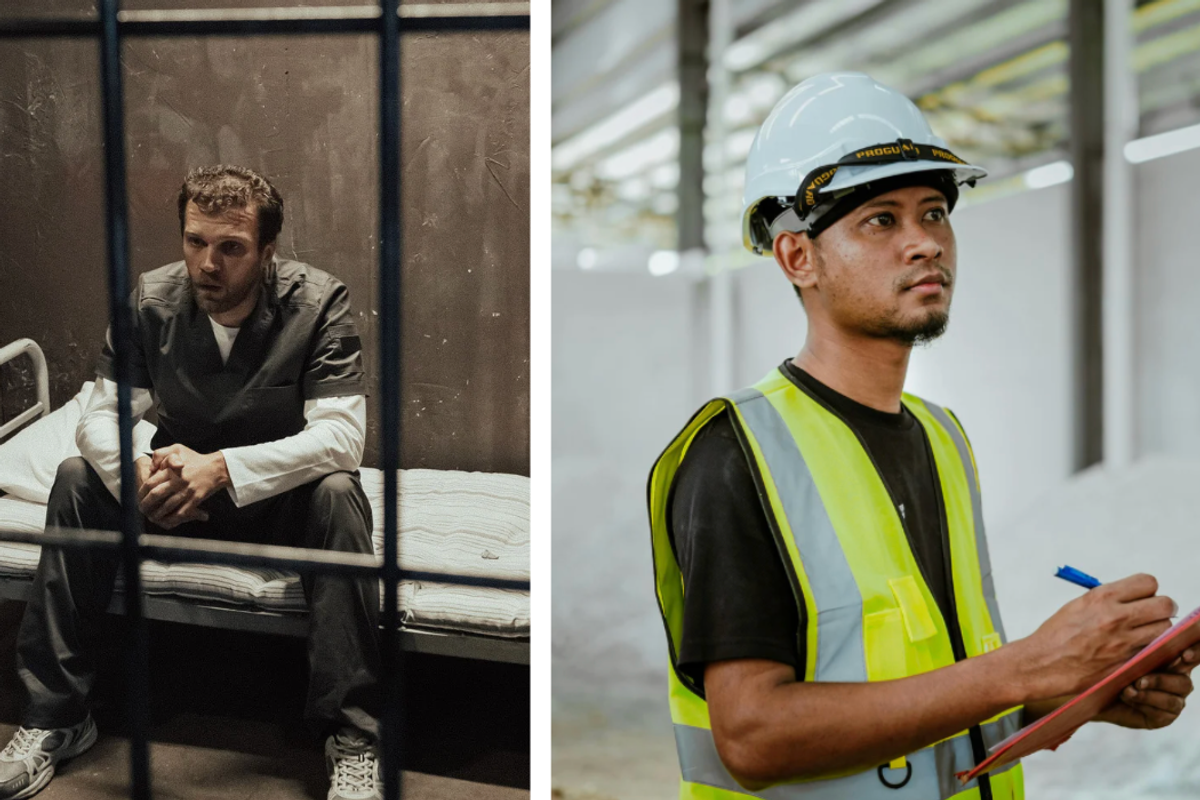Ex-convict buys North Carolina prison and turns it into housing for other former inmates
It could solve one of the biggest challenges facing people who have served time.
Kerwin Pittman wants to give ex-convicts like him a better chance at a new life.
When Kerwin Pittman was 18 years old, he was convicted and served 11 years and six months in prison for conspiracy to commit murder. Now, eight years after his release, he returns to another prison, not to serve time, but to offer hope for other former inmates. Pittman purchased an abandoned correctional facility to create a campus that helps former inmates transition back into life outside prison.
Since his release, Pittman has founded and serves as the executive director of Recidivism Reduction Educational Program Services, Inc. (RREPS), a nonprofit organization committed to helping incarcerated people reintegrate into society after completing their sentences. Through a series of donations and grants, Pittman was able to purchase the former Wayne Correctional Center in Goldsboro, North Carolina. He is believed to be the first formerly incarcerated person in the United States to have purchased a prison.
- YouTube youtu.be
Pittman aims to transform the 400-bed correctional facility into a campus where former inmates in his program can live for six months while earning certifications in trades such as electrical work, plumbing, HVAC, and construction. Pittman's formation of RREPS and purchase of the abandoned prison were inspired by seeing too many former cellmates return to prison because of the stigma attached to incarceration.
"I had family support, so I had housing. But a lot of my friends didn't have any place to go. Or if they did, there was a time limit on how long they could stay," Pittman told NC Newsline. "The campus would be like a stabilization phase for guys coming out of jail or prison, to give them a six-month pause so they can get their life back on track."
@kerwin.pittman.activist It’s A Blessing To Be A Blessing ~ over 250 plus lives touched, 100 plus records cleared, and countless new beginnings sparked. RREPS Wake County Expungement Clinic reminded us what it truly means to serve with purpose. Throughout the day, well over 200 people showed up, each one ready to take a step toward a fresh start. By the end, over 120 plus people had dismissed charges and convictions cleared from their records, giving them a real chance at new opportunities. We also helped folks obtain birth certificates, Social Security cards, and IDs, while connecting them to housing, jobs, food, and more! Heartfelt thanks to all the attorneys and law students who volunteered their time and expertise, and to our incredible partners: SouthLight, North Carolina Empowerment Organization, The Black Coalition of Forensic Peer Support Specialists, Wake LRC, Affluent Logistics and Transportation and Healing Transitions for standing alongside us in this work. Photos by:Glenn Alan #RREPS #ExpungementClinic #ReentryMatters #viral #fyp
Once the prison has been refurbished and looks less like a correctional facility, Pittman plans to have up to 300 residents live on the campus during a six-month training program designed to help them acclimate to life outside prison, learn a trade, and prepare to live and work independently. After that six-month period, a new group of 300 former inmates will be granted the same opportunity, and the cycle will continue.
"Normally, people will go to a halfway house or a reentry house, and those individuals will have to go outside for services," retired correctional officer Mario Davis told WITN. "But what he's done here is bringing formerly incarcerated people in, so they don't have to go out to get services."
In the U.S., a combination of stigma and lack of education makes it difficult for many former prisoners to find jobs. This often leaves former inmates desperate and unhoused, forcing some to return to crime to make ends meet or, in some cases, to be incarcerated again. For many, it's better to be in prison than to be homeless. By offering both shelter and what is essentially a trade school, Pittman can give former prisoners the chance not only to find jobs through trade certification, but also to work for themselves as independent contractors.
@brentcassity The Shocking Truth About Recidivism: Employment as the Key Recidivism rates are alarmingly high, with 77% of former inmates returning to prison within a year due to joblessness. Richard Bronson on the NIghtmare Success Podcast explores how securing stable employment can drastically change lives and reduce reoffending—revealing the true silver bullet for lasting change. #Recidivism #EmploymentMatters #nightmaresuccess #JobOpportunities #PrisonReform #ReentrySuccess #SecondChances #SocialImpact #ReduceRecidivism #prison #resilience #fyp
"For me to be a beacon of light in somebody's life when they're in a dark place, I know how it feels," said Pittman. "I remember when I was in that dark place of having to transition and not knowing what the possibility of my life could become, so to be able to guide somebody into that next step is extremely important, and I'm grateful to be able to do it."
If Pittman's mission inspires you to support people who have served their time and are seeking a second chance, there are resources available to donate your time, skills, or money.

